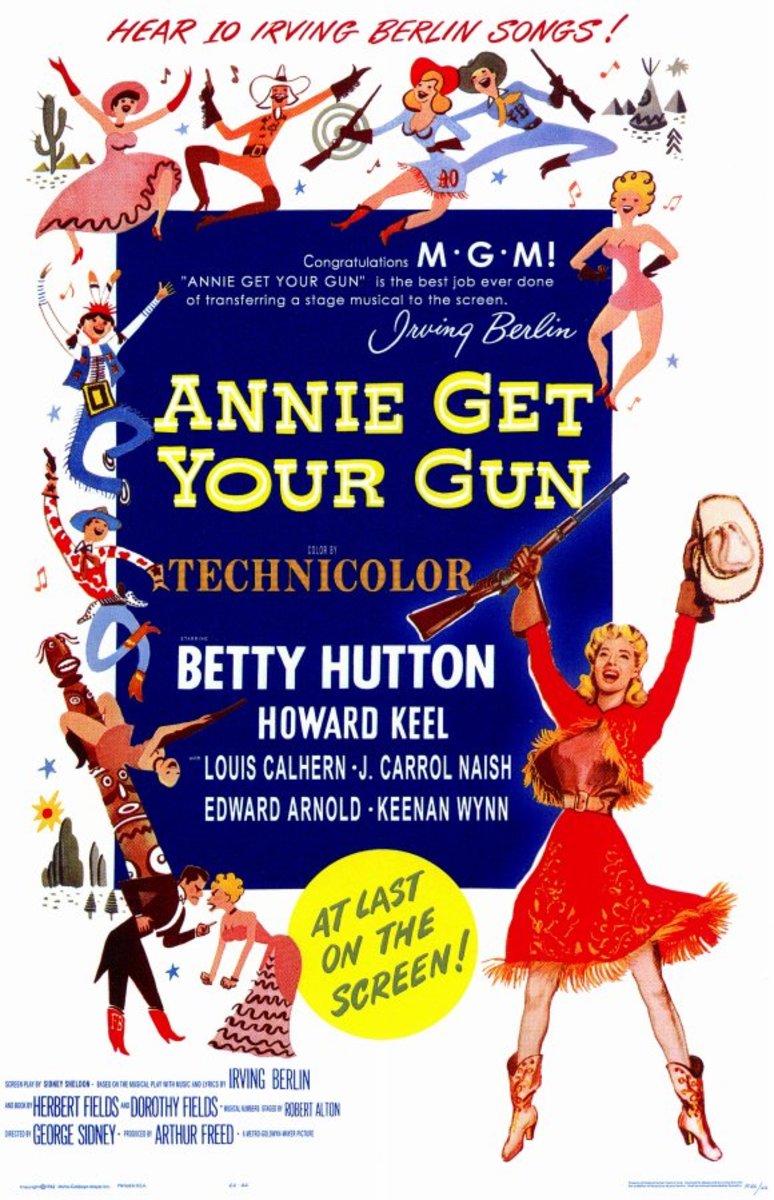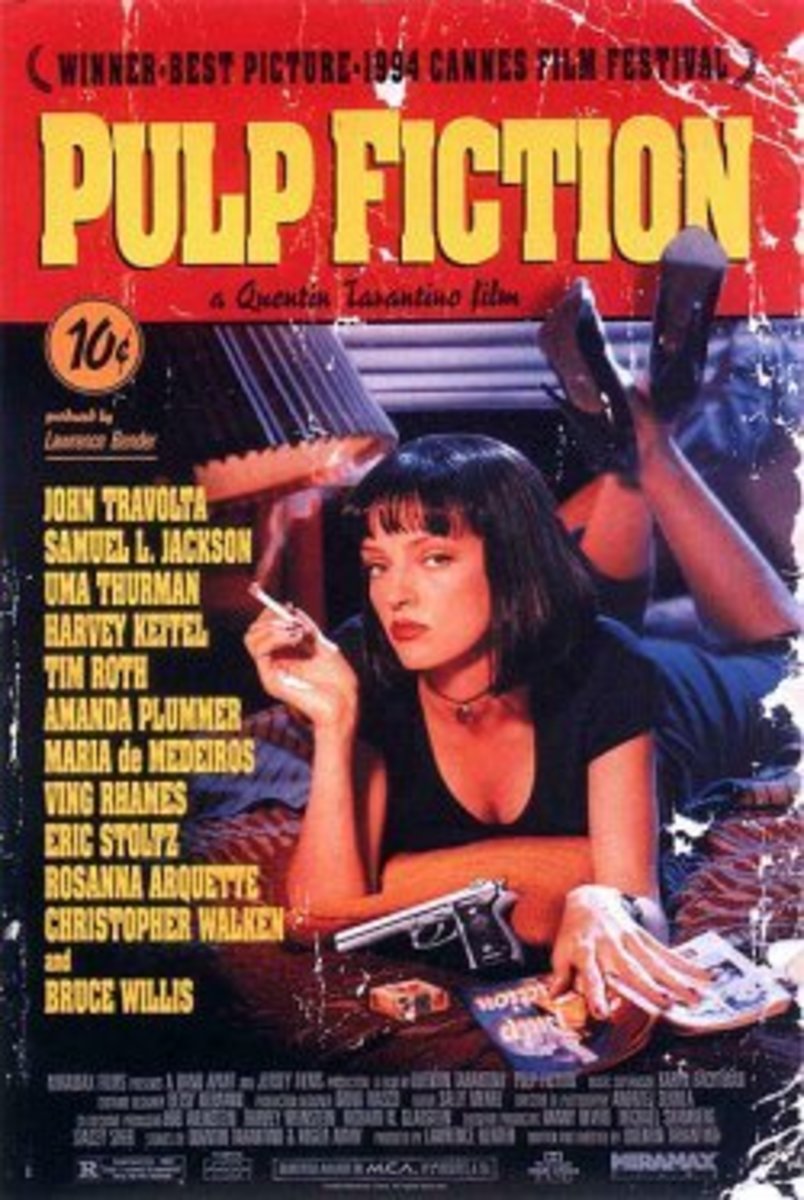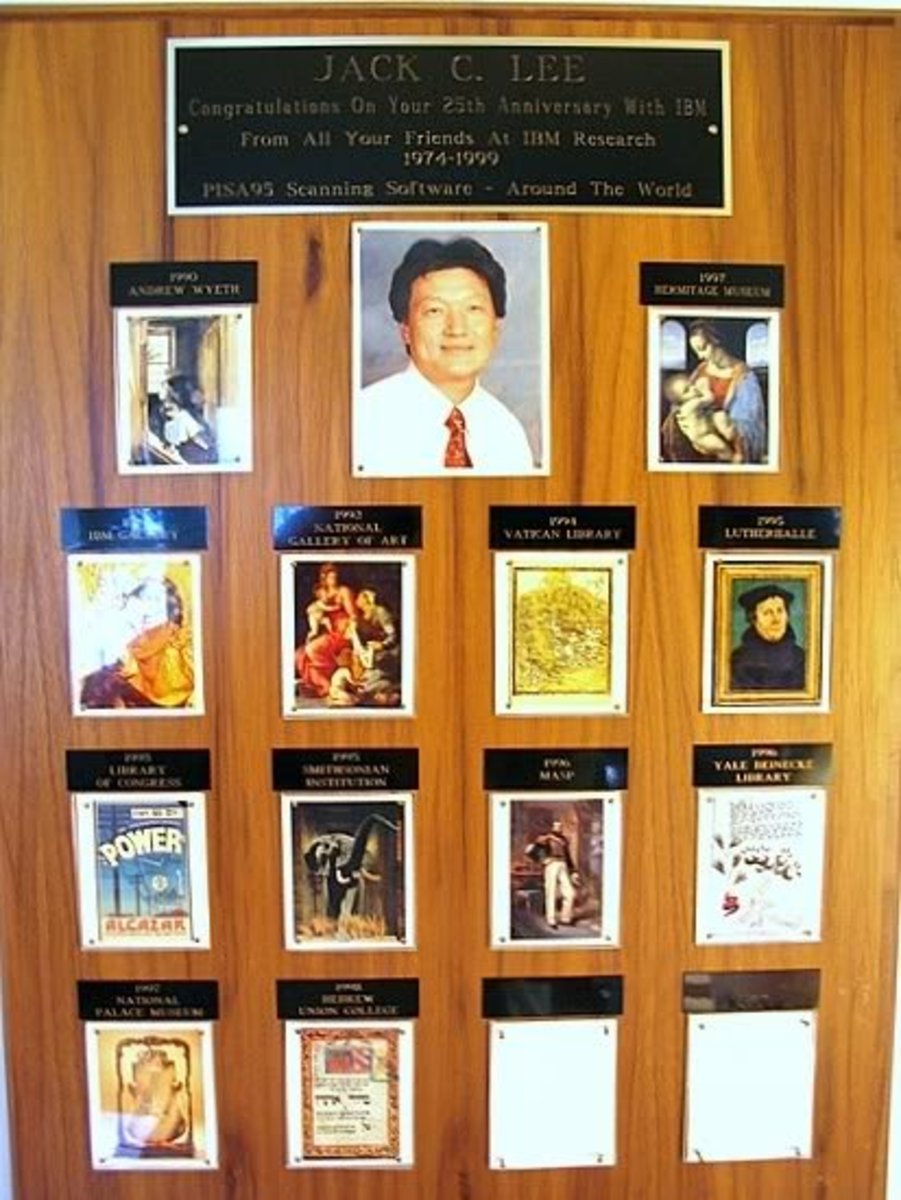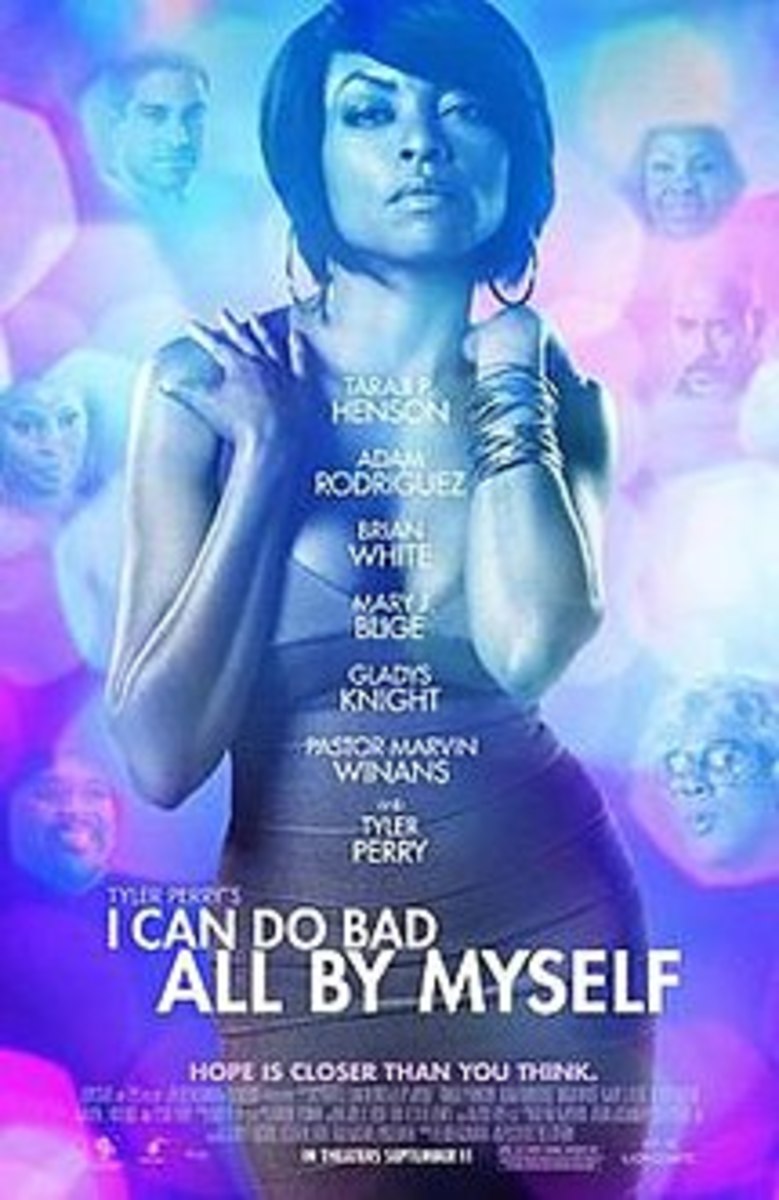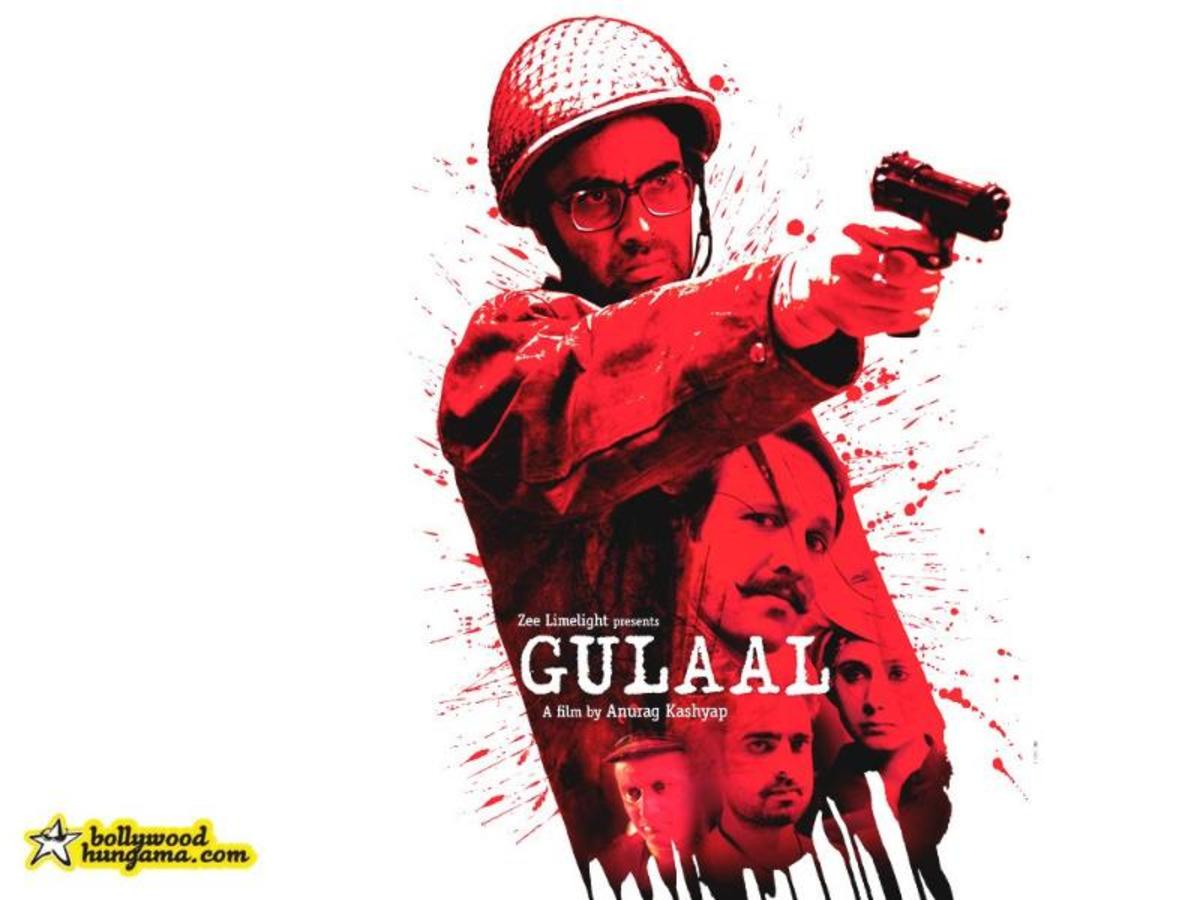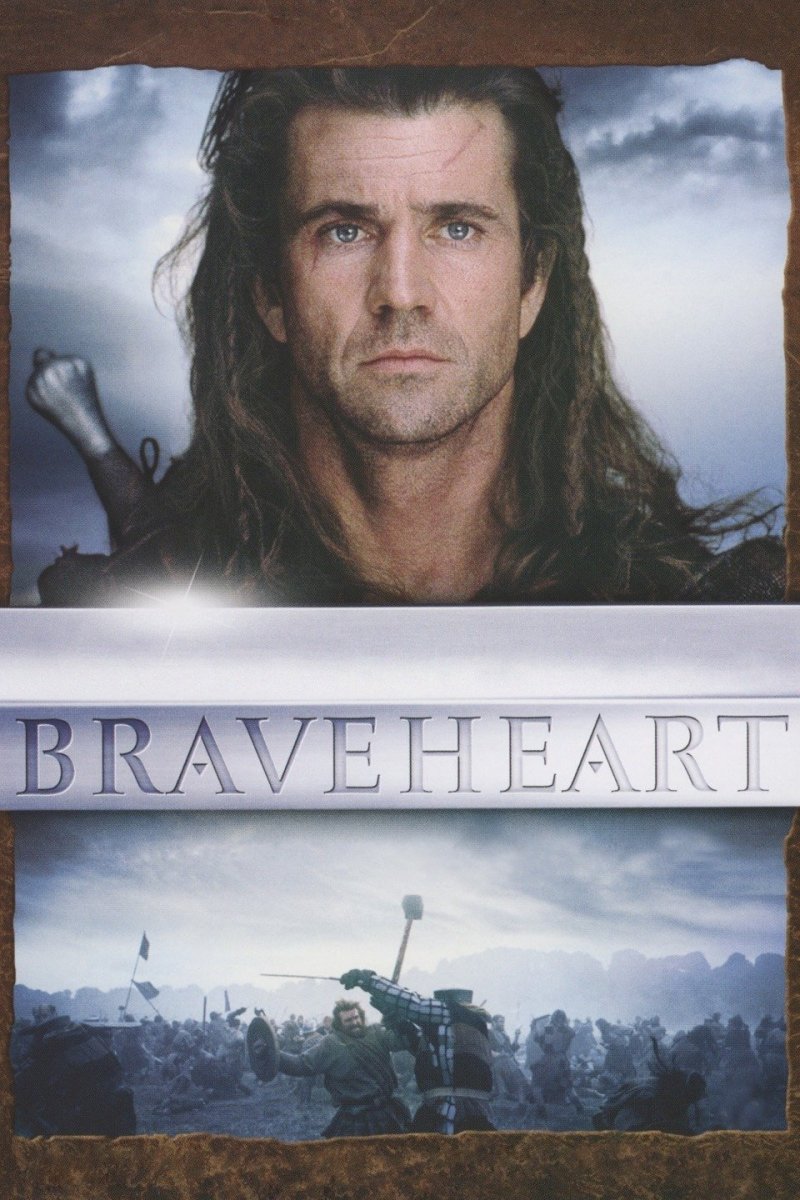Film Review: Pulp Fiction
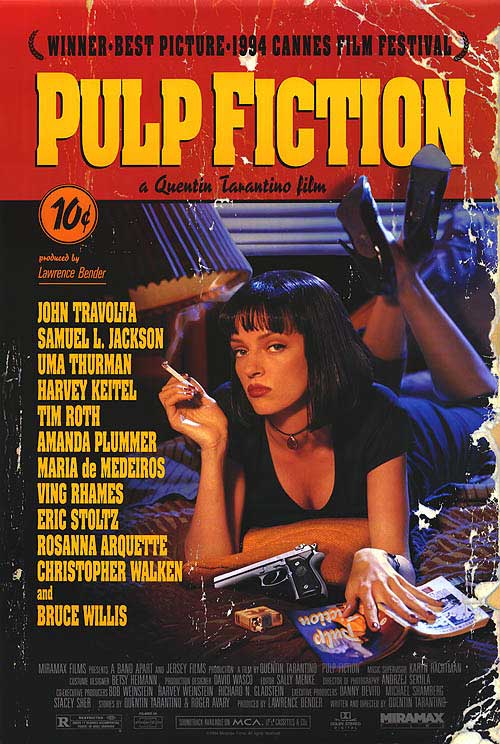
Background
In 1994, director Quentin Tarantino released Pulp Fiction, which starred John Travolta, Samuel L. Jackson, Uma Thurman, Harvey Kietel Tim Roth, Amanda Plummer, Maria de Medeiros, Ving Rhames, Eric Stoltz, Rosanna Arquette, Christopher Walken and Bruce Willis. The film grossed $213.9 million at the box office.
Synopsis
The lives of a gangster, his wife, two mob hitmen, diner bandits, and an aging boxer are thrown into chaos in four intertwining tales of violence and redemption.
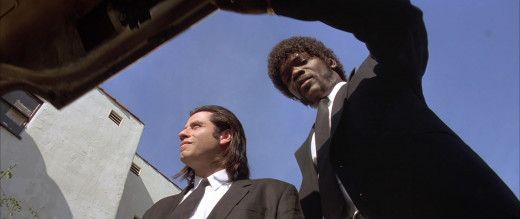
Review
Interesting and well-presented, Pulp Fiction is an interesting film, especially in the characters it presents to its audience. The first characters seen are Jules Winnfield and Vincent Vega, two hitmen who are not sociopaths and make a point to get into character before doing their job. Prior to the two of them doing so, they have a normal conversation about hamburgers, foreign drug use and foot rubs, displaying the instructions they receive are nothing more than a job in which they need to act professionally.
Likewise, they are two different people with two different personalities. Winnfield is serious and self-aware, contrasting to Vega's is sloppiness and obviousness to his surroundings. The two of them also deal with distinct character arcs. With Winnfield, he takes a gun missing them seriously and believes it is a sign to leave the life of a hitman behind. Throughout the rest of the film, he's shown trying to improve himself, seen when Pumpkin and Honey Bunny rob the restaurant. He spares the two, telling them they caught him in the middle of a reformation. Furthermore, his character development changes his interpretation of the verse he uses from Ezekiel, exhibiting his ability to critically analyze everything he does and what it means.
However, Vega takes the situation with the gun and brushes off, asserting his belief that Winnfield is acting irrationally. Vega's role as a hitman continues only to end after leaving a weapon laying out in the open where Coolidge could use it against him. Doing so demonstrates Vega was too sloppy and oblivious to do the job correctly in the first place and was riding Winnfield's coattails the entire time. His character arc appears to be a notable deconstruction of crime thriller tropes. He may act cool, suave and in control, yet he has no control over any aspect of what happens to him whatsoever.
A major aspect to the film revolves around Vega using the restroom and coming back to major changes in his life and chronologically, they all increase in importance. The first time, he misses the beginning of the robbery, then misses Mia overdosing and the third leads to his death.
Additionally, the film employs a fascinating method of character development regarding Marcellus Wallace. Initially, he's seen from behind until he appears in Coolidge's storyline, distancing him from the audience. Upon his encounter with the hillbillies and Coolidge saving him from them, the film begins to humanize Wallace and he shows his full humanity in his final scene. it's a fantastic way of creating character development without the character truly developing. Rather, the audience is seeing different facets of his personality.
Wallace's characterization deconstructs crime thriller tropes as well, establishing even feared crime lords can make stupid mistakes.
The film even gives Coolidge an intriguing character arc dealing with profound human actions and tendencies. He takes Marsellus' money, but betrays him by winning the fight and inadvertantly killing his opponent and plans to skip town with his girlfriend. The plan would have worked perfectly had said girlfriend not forgotten his watch, causing Coolidge to head back to his apartment only to be forced to kill Vega and run into Marsellus, sparking the fight where the two are taken captive by the hillbillies. Throughout all of this,Coolidge shows a substantial amount of humanness, such as pride in not wanting to throw a fight, feeling slightly melancholy at having his opponent dying in the ring, attachment to his father's watch, relief in being able to escape the hillbillies coupled with the realization he cannot just leave Wallace, and a sense of honor in returning to save him.
the postings on this site are my own and don't necessarily represent WNI's positions, strategies or opinion
Awards & Recognitions
bold indicates reception of award/recognition
Academy Awards
- Best Writing, Screenplay Written Directly for the Screen
- Best Picture
- Best Actor in a Leading Role (John Travolta)
- Best Actor in a Supporting Role (Samuel L. Jackson)
- Best Actress in a Supporting Role (Uma Thurman)
- Best Director
- Best Film Editing
BAFTA Awards
- Best Actor in a Supporting Role (Samuel L. Jackson)
- Best Screenplay - Original
- Best Actor (John Travolta)
- Best Actress (Uma Thurman)
- Best Cinematography
- Best Editing
- Best Film
- Best Sound
- David Lean Award for Direction
Academy of Science Fiction, Fantasy & Horror Films, USA SAturn Awards
- Best Action/Adventure/Thriller Film
American Cinema Editors, USA Eddie Awards
- Best Edited Feature Film
American Comedy Awards, USA
- Funniest Supporting Actress in a Motion Picture (Amanda Plummer)
Australian Film Institute Awards
- Best Foreign Film Award
Awards Circuit Community Awards
- Best Motion Picture
- Best Director
- Best Actor in a Supporting Role (Samuel L. Jackson)
- Best Original Screenplay
- Best Film Editing
- Best Cast Ensemble
- Second Place - Best Actress in a Supporting Role (Uma Thurman)
- Second Place - Best Costume Design
- Second Place - Best Stunt Ensemble
- Best Actor in a Leading Role (John Travolta)
- Best Cinematography
Awards of the Japanese Academy
- Best Foreign Film
Blue Ribbon Awards
- Best Foreign Language Film
Boston Society of Film Critics Awards
- Best Film
- Best Director
- Best Screenplay
Brit Awards
- Best Soundtrack
Cannes Film Festival
- Palm d'Or
Casting Society of America, USA Artios Awards
- Best Casting for Feature Film, Drama
Chicago Film Critics Association Awards
- Best Director
- Best Screenplay
- Best Supporting Actress (Uma Thurman)
- Best Actor (Samuel L. Jackson)
- Best Actor (John Travolta)
- Best Picture
Chlotrudis Awards
- Best Movie
- Best Actor (Samuel L. Jackson)
- Best Supporting Actor (Bruce Willis)
- Best Supporting Actress (Uma Thurman)
Cesar Awards, France
- Best Foreign Film
Dallas-Fort Worth Film Critics Association Awards
- Best Picture
- Best Director
- Best Screenplay
- Second Place - Best Supporting Actress (Uma Thurman)
- Third Place - Best Actor (John Travolta)
David di Donatello Awards
- Best Foreign Actor (John Travolta)
- Best Foreign Film
- Best Foreign Actress (Uma Thurman)
Directors Guild of America, USA Awards
- Outstanding Directorial Achievement in Motion Pictures
DVD Exclusive DVD Premiere Awards
- Best Menu Design (for the Collector's Edition)
Edgar Allen Poe Awards
- Best Motion Picture
Empire Awards, UK
- Best Director
Golden Globe Awards
- Best Screenplay - Motion Picture
- Best Motion Picture - Drama
- Best Director - Motion Picture
- Best Performance by an Actor in a Motion Picture - Drama (John Travolta)
- Best Performance by an Actress in a Supporting Role in a Motion Picture (Uma Thurman)
- Best Performance by an Actor in a Supporting Role in a Motion Picture (Samuel L. Jackson)
Golden Schmoes Awards
- Second Place - Best DVD of the Year (Pulp Fiction: Special Edition)
Golden Trailer Awards
- Best of the Decade
IGN Summer Movie Awards
- Best Movie Blu-Ray (for the Tarantino XX: 8-Film Collection)
Independent Spirit Awards
- Best Feature
- Best Director
- Best Male Lead (Samuel L. Jackson)
- Best Screenplay
- Best Supporting Male (Eric Stoltz)
Italian National Syndicate of Film Journalists Silver Ribbon Awards
- Best Foreign Director
Kansas City Film Critics Circle Awards
- Best Film
- Best Direcotr
Key Art Awards
- Third Place - Best Trailer - Audio/Visual (for the trailer of the Tarantino XX Collection)
Kinema Junpo Awards
- Best Foreign Language Film
London Critics Circle Film ALFS Awards
- Actor of the Year (John Travolta)
- Screenwriter of the Year
- Film of the Year
- Director of the Year (Quentin Tarantino)
Los Angeles Film Critics Association Awards
- Best Picture
- Best Actor (John Travolta)
- Best Director
- Best Screenplay
MTV Movie Awards
- Best Movie
- Best Dance Sequence
- Best Female Performance (Uma Thurman)
- Best Male Performance (John Travolta)
- Best On-Screen Duo (Samuel L. Jackson/John Travolta)
- Best Movie Song ("Girl, You'll be a Woman Soon")
National Board of Review, USA Awards
- Best film
- Best Director
- Top Ten Films
National Film Preservation Board, USA
- National Film Registry
National Society of Film Critics Awards, USA
- Best Film
- Best Director
- Best Screenplay
- Second Place - Best Supporting Actress (Uma Thurman)
- Second Place - Best Supporting Actor (Samuel L. Jackson)
- Second Place - Best Actor (Samuel L. Jackson)
- Third Place - Best Actor (John Travolta)
New York Film Critics Circle Awards
- Best Director
- Best Screenplay
- Second Place - Best Film
- Second Place - Best Actor (Samuel L. Jackson)
- Second Place - Best Supporting Actress (Uma Thurman)
Online Film & Television Association Awards
- OFTA Hall of Fame - Motion Picture
Screen Actors Guild Awards
- Outstanding Performance by a Male Actor in a Leading Role (John Travolta)
- Outstanding Performance by a Male Actor in a Supporting Role (Samuel L. Jackson)
- Outstanding Performance by a Female Actor in a Supporting Role (Uma Thurman)
Society of Texas Film Critics Awards
- Best Film
- Best Director
- Best Actor (Samuel L. Jackson)
- Best Screenplay
Southeastern Film Critics Association Awards
- Best Picture
- Best Director
Stockholm Film Festival Awards
- Best Actor (John Travolta)
- Best Screenplay
- Bronze Horse

